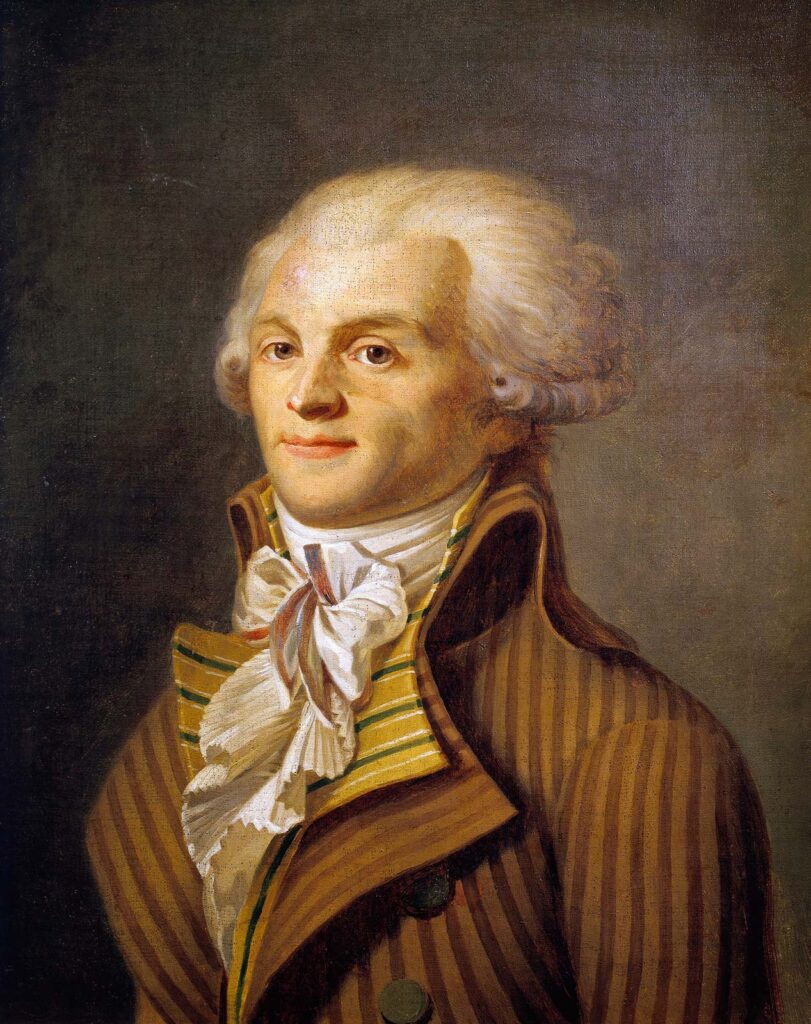Maximilian Robespierre was a major political figure in eighteenth century France. He was a French lawyer who became one of the most influential figures in the French Revolution. Robespierre served as a member of the Committee of Public Safety. He grew up with strong moral values, which further helped him to fight against the death penalty and advocate the abolishment of slavery. Being a revolutionary at heart, Robespierre joined politics and fought against monarchy, following which monarchy was abolished and France was finally declared a republic.
Maximilien Robespierre was born on May 6, 1758 to Francois Maximilien Barthelemy de Robespierre and Jacqueline Marguerite Carrault. His father was a lawyer at the Conseil d’ Artois Maximilien was the eldest child out of four siblings.
Robespierre lost his mother at a young age, following which his father abandoned them. They grew up at their parental aunt’s went to middle the age of right; Robespierre went to middle school at Arras for his primary education. Later he was recommended by the Bishop for a scholarship to the Lycee Louis-Ie-Grand in Paris in 1769. He was trained in law and politics at the university. He graduated at the age of 23.
As a student the Philosopher Jean-Jacques Rousseau inspired Robespierre. Fascinated by his thoughts and writing, Robespierre adopted many of his philosophies and values.
Robespierre was admitted to the Arras bar after the completion of his legal studies. He was appointed as a judge in the criminal court of the Diocese of Arras in March 1782. However, he was opposed to death penalty, which caused him to eventually resign.
With time, he became an amazing advocate he further fought for the rights of men and campaigned for the ideals of enlightenment of the public. Following this, he ventured into politics and was elected as a deputy of the Third Estate. Robespierre soon became popular for his attacks on the French monarchy and his democratic reforms.
In April 1789, Robespierre became the president of the powerful Jacobin political faction. The following years, Robespierre spent his time writing the Declaration of Rights of Man and Citizen, which later became a part of the French Constitution.
During the rule kind Louis XVI, Robespierre actively protested against the monarchy and freed people from the King’s rule. Later, he was announced as the head of the Paris delegation for the National Convention. On September 21, 1972, France was declared a republic. Following this, the kind was put on trial for treason and finally executed in January 1793.
After the king’s execution, Robespieree’s influence increased manifold. Soon the need for a state government increased. The Jacobins established a Revolutionary Tribunal in March 1793. They replaced the Committee of General Defense with the Committee of Public Safety, of which Robespieree became an important member of the committee. A period known as the ‘Reign of Terror was an attempt to remove all those who opposed the revolution. Massacres and many public executions took place, and after 1793, Robespieree became one of most hated figures in the country.
Followed by the unprecedented violence unleashed on the country under the reign of Terror, the Thermidorian Reaction, a counter revolution, commenced in 1974. It was a coup d’état against the dominating members of the Jacobin club who were central to the committee of Public Safety. Robespieree was accused of being the planner of the Reign of Terror. He was arrested along with others who were accused of the same, like Louis Antoine de Saint-Just.
Later, Robespieree was declared an outlaw, executed and condemned with judicial process. He was executed on July 28, 1794. Robespieree’s life ended in one of the most radical phases of the French Revolution.

